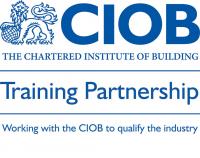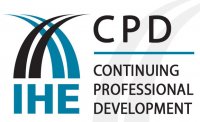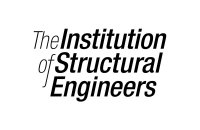The National Water Hygiene scheme is recognised by the UK water industry as a vital part in ensuring the protection of public health and promoting safe drinking water practices. It is a criminal offence to supply water unfit for human consumption.
Created in 2006, the 'Blue Card' replaced all water company specific hygiene schemes and removed the need for workers to undergo separate testing, health screening and to carry multiple cards. Water companies across the UK now mostly mandate the use of the National Water Hygiene card for anyone entering a clean water site or engaged in operations on the clean water network, whether in contact with the water or not.
Overview:
The scheme consists of 4 modules covering awareness of safe water hygiene practices:
Module 1: Covers the importance of water, recognising water as a foodstuff and understanding the need for wholesome water.
Module 2: Describes the history of waterborne disease and how to work responsibly in the water industry.
Module 3: Recognises where contamination can occur in the water supply journey and the potential contamination and its consequences.
Module 4: Covers how the worker can preventing contamination and how to deal with high risk situations.
Each assessment criterion will be assessed as a part of programme delivery through an end of programme multiple-choice test.
As a guide, the entire National Water Hygiene materials can be delivered in 2 hours 20 minutes. Allowing approximately 30 minutes for assessment purposes (i.e. assessment at the end of the programme) means that the entire National Water Hygiene programme will take around 2 hours 50 minutes to deliver. These figures are for guidance purposes only and, where circumstances vary, timings may be reduced or increased.
Aims & Objectives:
On completion of this course, delegates will be able to:
- Identify their own personal responsibilities in relation to the clean water network.
- Be able to define the term ‘wholesome water’ and identify its importance and scarcity.
- Candidates should be able to recognise which waterborne diseases can be easily spread and how, particularly in relation to issues such as Cryptosporidium and why this bacteria poses a problem to the water industry.
- Identify the risks posed to water quality. How contamination can be brought into these areas through bad practice, and the actions that should be taken by individuals to reduce risks to water quality such as reporting illnesses and receiving the correct training.
- State the facilities that should be available to maintain good personal hygiene. Including the hygiene requirements for tools, clothing, fittings and vehicles. State the storage and purchasing requirements for products used in the industry.
- Identify the purpose of disinfection/chlorination and state common company procedures for chlorine strength and how to safely dispose of highly chlorinated water.
- Candidates should understand the role of water quality sampling and the role of internal company/external regulatory water quality functions.
- Finally candidates should be able to identify emergency procedure(s) to be followed for suspected contamination of the water network.
Course Outline:
Course Introduction
Module 1: The Importance of Water
Module 2: Water as a Carrier of Disease
Module 3: Potential Contamination and its Consequences
Module 4: Preventing Contamination
Mode of Delivery:
The course is delivered via a PowerPoint presentation by a tutor which includes;
- Individual and Group Exercises
- Discussion
- Video clips
- Final Assessment
The final assessment consists of 25 multiple choice questions. Candidates must achieve 22/25 questions correctly answered in order to pass the assessment.
Benefits of Attending:
Any person working on a Restricted Operations area at sites such as service reservoirs, water pumping stations, water treatment works, wells, springs and boreholes or working on the network of water mains and service pipes must be in possession of a National Water Hygiene card. This course will enable them access to these areas subject to the water company’s approval.
Intended For:
Those who need to work within or access a restricted operations site on the water network, such as treatment plants, installation of new mains and services, maintenance work or sampling.
It is increasingly expected that all those handling water for human consumption, including contractors, facilities management organisations, environmental health practitioners, water engineers, plumbers etc. also carry a 'Blue Card' to demonstrate competence and their understanding of safe water hygiene practice.
Pre-Course Requirements:
There are no pre course requirements for this course.








